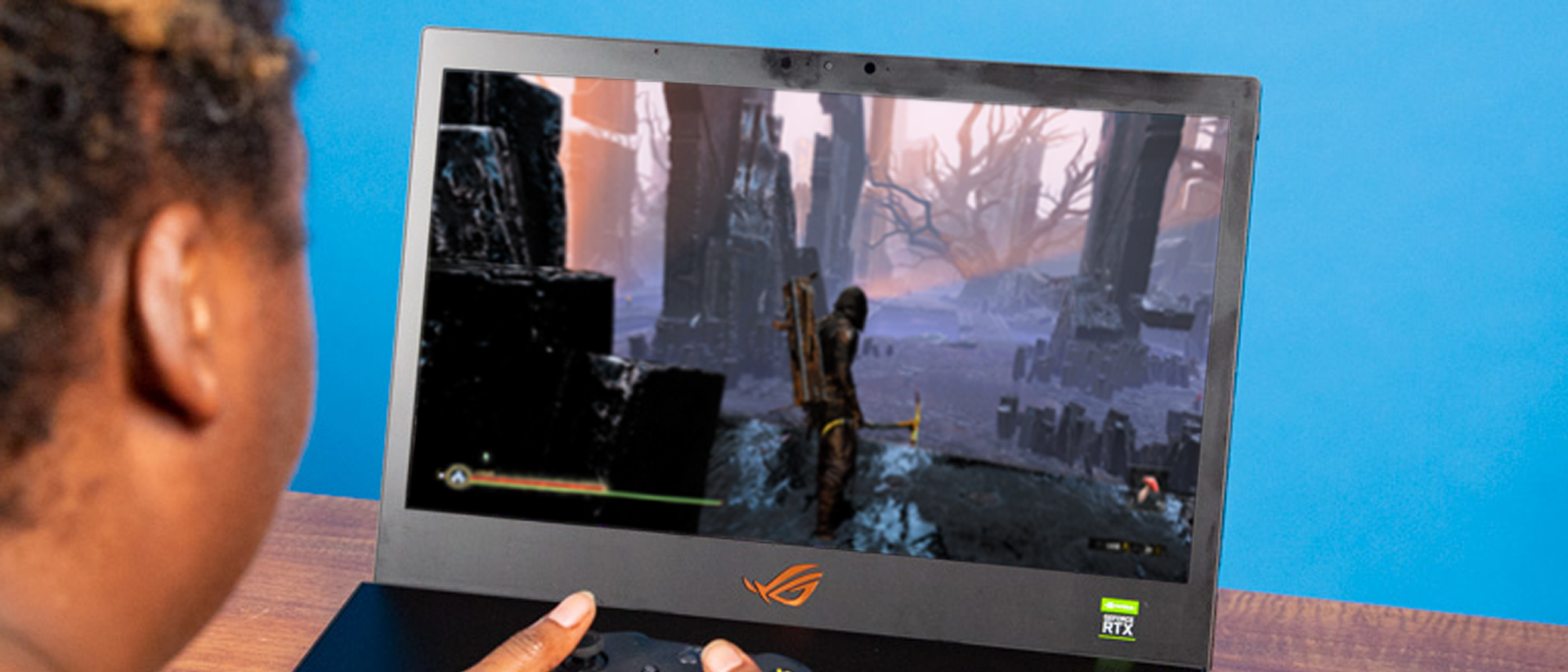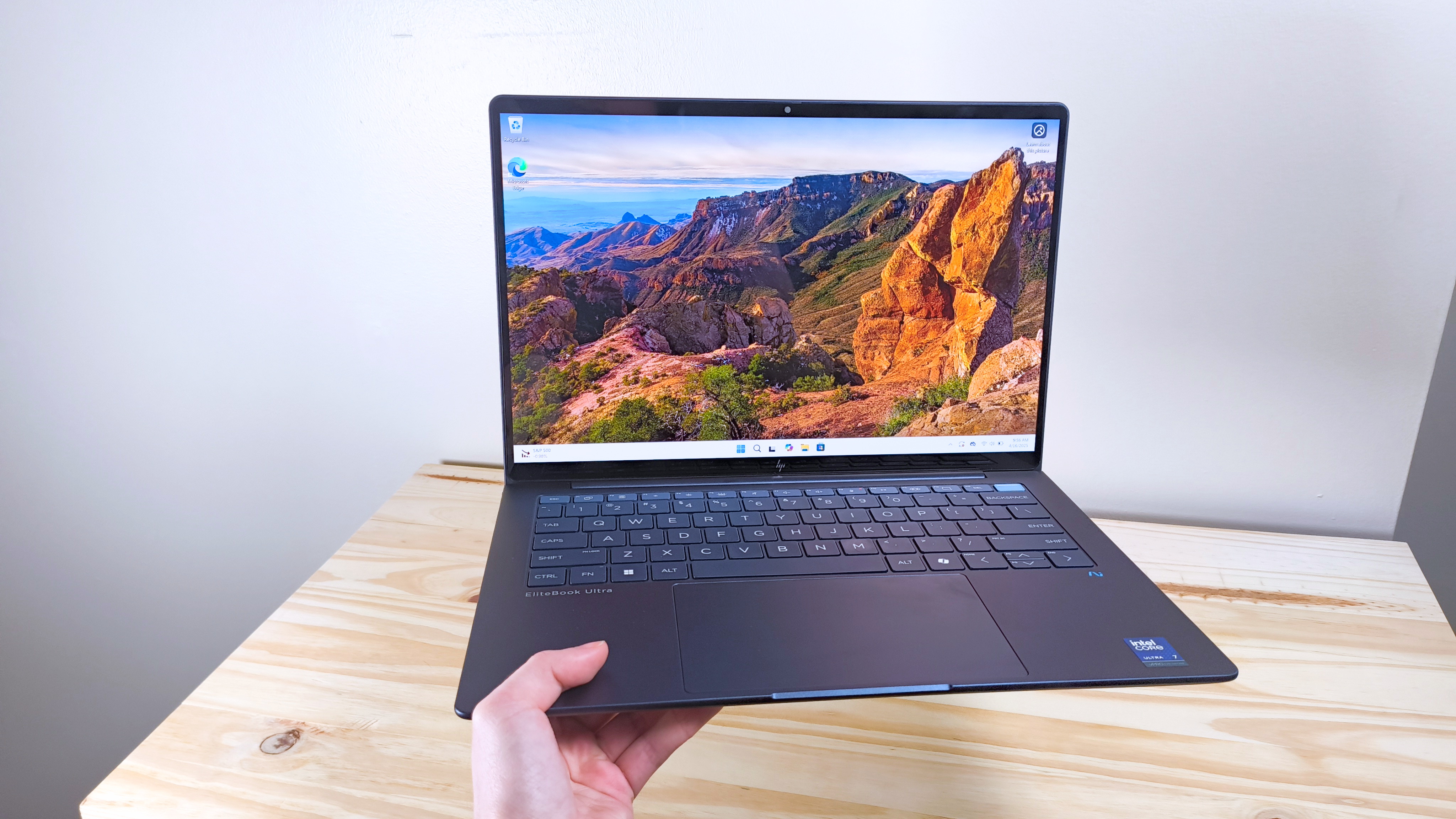Laptop Mag Verdict
Mortal Shell will induce excessive levels of stress and a practically unending sense of dread. But, if you’re looking for a deep role-playing game with an abundance of unique content, you might come out disappointed.
Pros
- +
Satisfying combat
- +
Incredibly strict checkpoint system
- +
Compelling art direction
- +
Solid maze-like level design
Cons
- -
Underwhelming progression
- -
Many reused enemies and assets
- -
Soundtrack is barely there
- -
Some frustrating bugs
Why you can trust Laptop Mag
If you’re as much of a masochist as I am, then you’re desperately searching for the next video game to lovingly crush your heart and ruin your week. With Elden Ring nowhere to be seen, Mortal Shell is the best chance we’ve got at scratching that itch.
Thankfully, Mortal Shell has done exactly that. While the game is flawed due to an underwhelming progression system and a lack of unique content, it’s still well worth playing for any and all Soulsborne fans.
Mortal Shell gameplay and narrative overview
Similar to most Souls-like games, Mortal Shell’s narrative is incredibly minimalistic and vague. Players begin their journey in a foggy realm where they must battle Hadern, a mysterious armored man who haunts the player throughout different spots of the world. Once they either win or lose the fight, they’re immediately transported to Fallgrim, a large maze-like forest.
When they arrive, players will consume the Shell of “Harros, the Vassal” and utilize his abilities to progress through the area. There are three more Shells in the game, each with preset stats. Where Harros is meant to be a balance between every stat, one is agile, another is tanky and the final one has tons of resolve.
Resolve is Mortal Shell’s unique bar that allows users to pull off special abilities attached to weapons or empower their parry with special effects. For example, with the Hallowed Sword, players can use two resolve bars to turn it into a spike and deal tons of damage. Resolve is regained by hitting tons of enemies in quick succession.
In general, Mortal Shell is very careful and calculated, but if you’re patient, it'll reveal itself to be quite easy to master. As a general tip, I recommend never locking onto your opponents, as dodge rolling while doing so is quite inaccurate. You will find yourself pointing in one direction to roll while your character moves in the complete opposite.
Mortal Shell’s difficulty
Mortal Shell’s combat system is surprisingly forgiving. The “Harden” ability can turn the player into stone and allow them to resist all damage taken from the next hit. If you only approach enemies when your Harden is off cooldown and dodge their attacks otherwise, you’re pretty much invincible.
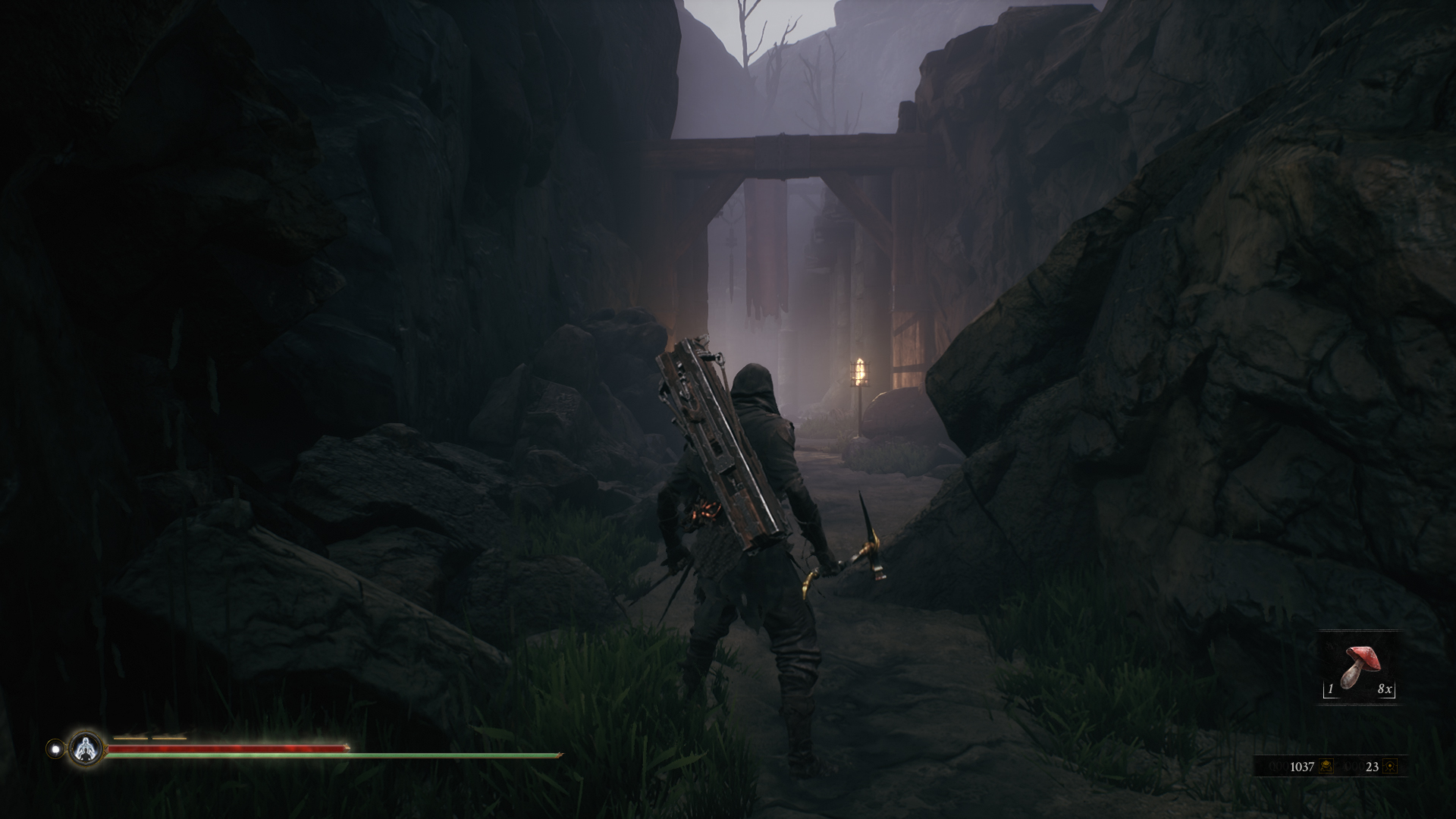
Furthermore, the game’s parry system is a bit busted. Successfully pulling off a parry and using your resolve meter to get an “Empowered Riposte” allows you to stun the enemy, heal yourself, and then beat on them. There are even alternative versions that allow the player to manipulate time or deal even more damage.
On the other hand, many attacks appear to be unparryable, even when the game indicates they are. There’s a built-in system that has the parry item attached to the player's back glow red when an incoming attack cannot be parried. However, even when this isn’t glowing, I often still fail to pull off a parry when my timing was perfect.
The game’s difficulty does not stem from its combat system. Dark Souls wore players down by forcing them to fight dozens of enemies and traverse a handful of devious obstacles within a single run. Mortal Shell takes this to an extreme, as I spent the first to-3 hours of the game wandering around Fallgrim without ever finding a checkpoint. This is reflected in the entirety of my 14-hour journey, with the finale being especially brutal. Each tight space and gigantic enemy shot my anxiety levels through the roof.
Unforgiving design
The game’s opening area, Fallgrim, is a forest labyrinth the player explore for quite a bit of the game. It connects to every other environment within the world and harbors the only area that allows you to swap weapons and shells. This was initially frustrating, as I once found myself deep in another area without the ability to swap weapons. There is an item that allows you to do this, but by the time I figured out which weapon I would focus on using, it wasn’t much use for me.
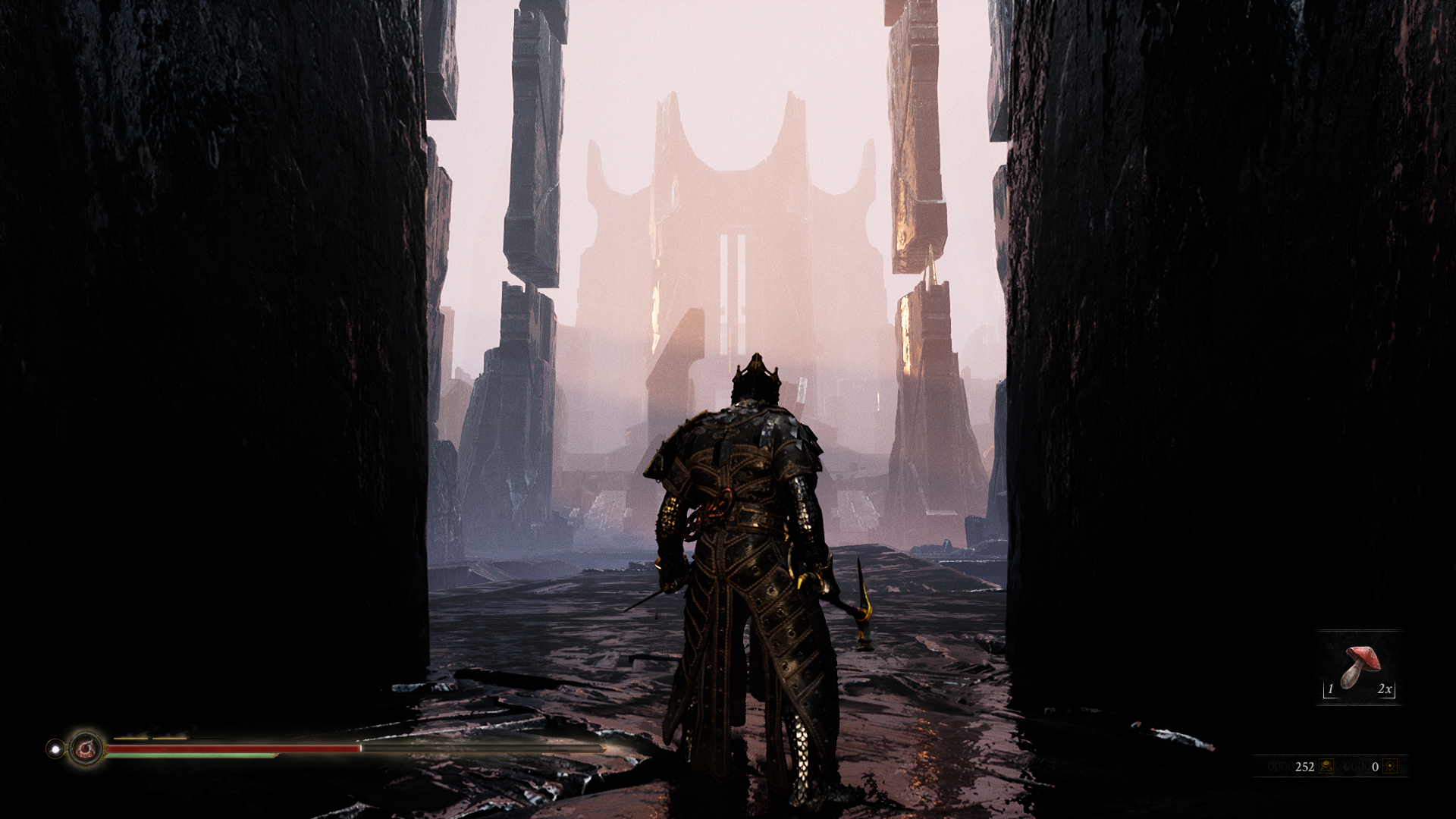
It’s also crazy that the only way players can figure out what an item does in their inventory is to at least use it once. This adds so much pressure to the experience, as even the things that should help the player are shrouded by a sense of dread and mystery. Players can also increase their familiarity with an item, and once it’s been maxed, the effects can change. For example, eating a Roasted Rat enough times increased its healing potential by 10 points.
Additionally, players cannot fast travel for a large majority of this game, and even when they acquire the ability, there are a few moments that prevent the player from doing so. This sort of system helped add a lot of tension, making a handful of death runs incredibly memorable.
Underwhelming progression and small scale
Mortal Shell’s biggest issue is that it lacks a deep or satisfying progression system. There are only four melee weapons in the game and players are unable to level up or change their character's stats. Instead, the player will inhabit “Shells,” which each come with a rather small skill tree and a preset health, stamina and resolve bar.
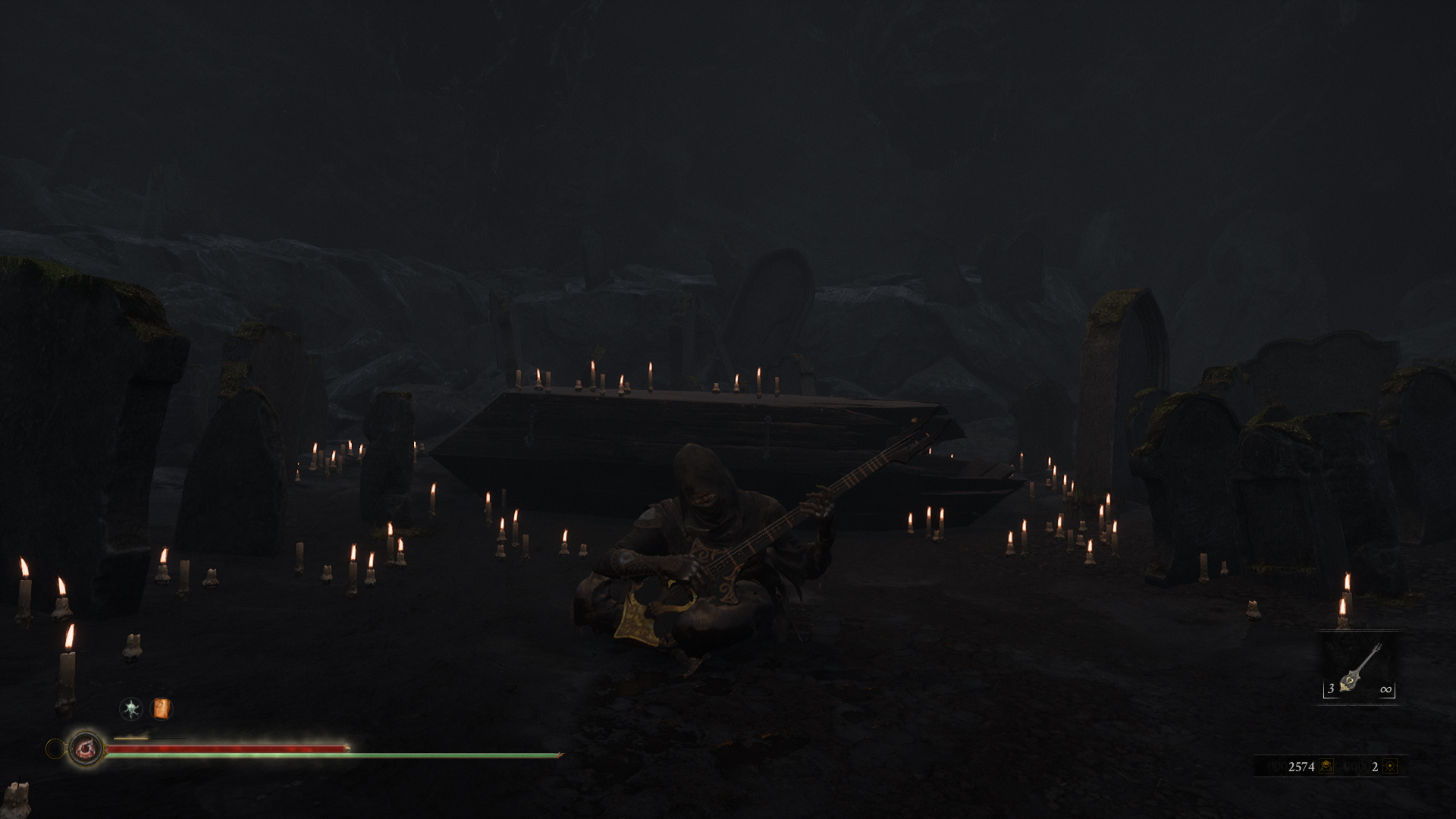
I maxed my favorite Shell’s skill tree and fully upgraded my weapon of choice within my first seven or so hours, which meant I spent the rest of the game without a meaningful avenue to utilize my Glimpses and Tar. Instead, I purchased tons of cooked rats and had to treat the rest of the experience like an action game rather than an RPG. As a fan of Souls, I was disappointed, as the series is famous for its ridiculous build diversity.
Mortal Shell is also quite small in scale, with only four unique areas in the game, each of which quickly became repetitive. Fallgrim, in particular, is home to only three or four enemy types and many assets that are recycled and reused. This may not sound bad, but players will be constantly roaming around Fallgrim for five or six hours of their total run time. Thankfully, Mortal Shell is only $30, which makes it clear that Cold Symmetry understands that the game isn’t an AAA experience.
Mortal Shell’s visual and music
I’m impressed with the art direction of Mortal Shell. Most of the game utilizes a very cool color scheme, which translates the severe loneliness of the dark and broken world its creatures inhabit. As players look towards the skies of Fallgrim, all they see are the branches of dead trees, shifting about as if they exist within the reflection of a pool of water. It looks grim and nightmarish, and as the player reaches the pinnacle of the final area, the world grows more shattered and disjointed, forcing them to step along as if walking a tightrope.
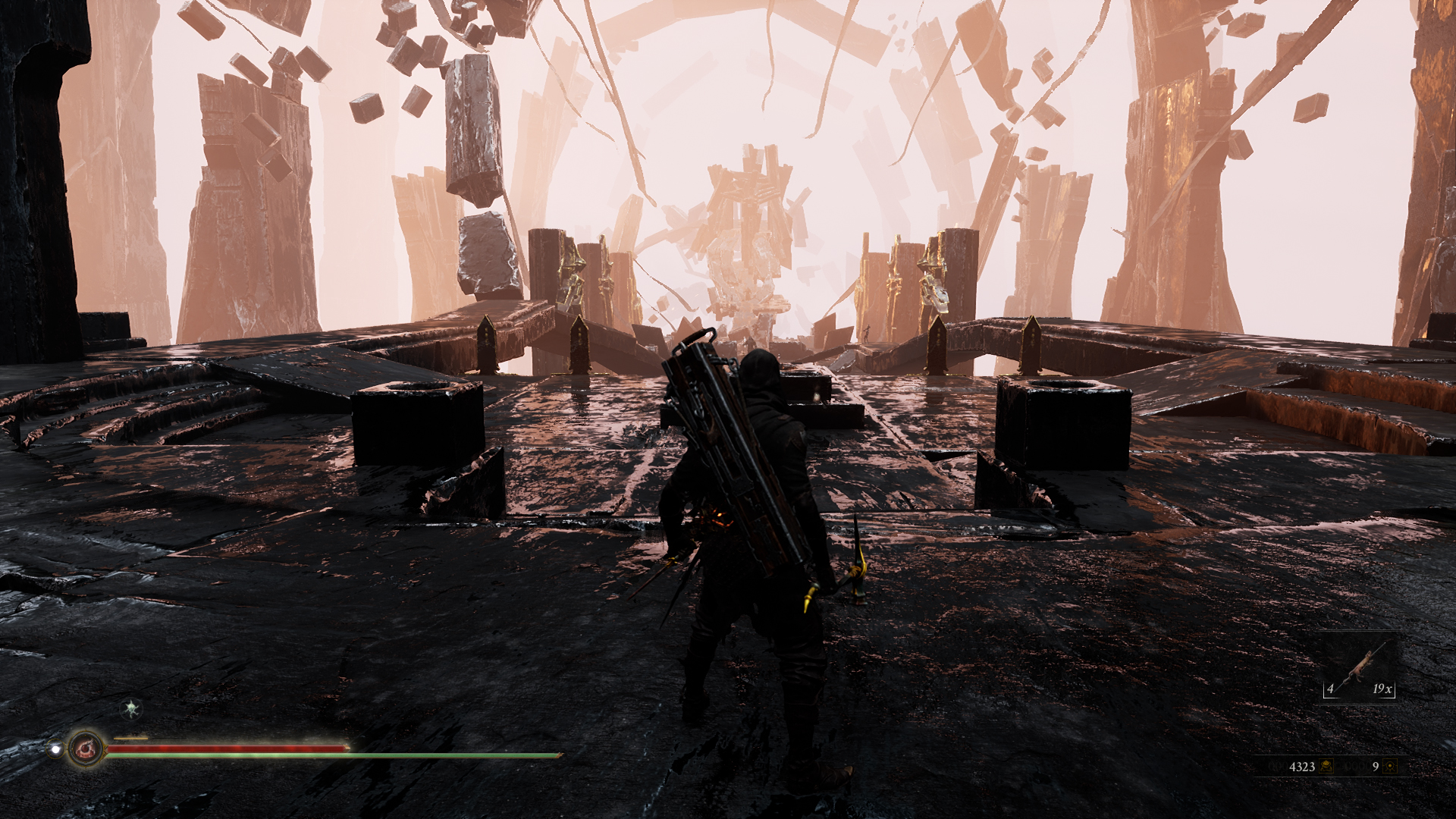
And finally, if you’re expecting a soundtrack akin to those heard in Bloodborne or Dark Souls, be prepared for disappointment. Mortal Shell’s music is a bit more lowkey, with percussion-focused sound design inhabiting most boss arenas. This decision definitely adds to the tension, but the complete lack of a memorable OST is upsetting.
Mortal Shell: PC performance
Mortal Shell isn’t an overly buggy experience, but due to the difficult nature of the game, getting cheated by the few that do exist is especially frustrating. A particularly noticeable gameplay issue is that the Harden ability occasionally stops working. I couldn’t remedy this without dying, which often meant losing half an hour of progress.
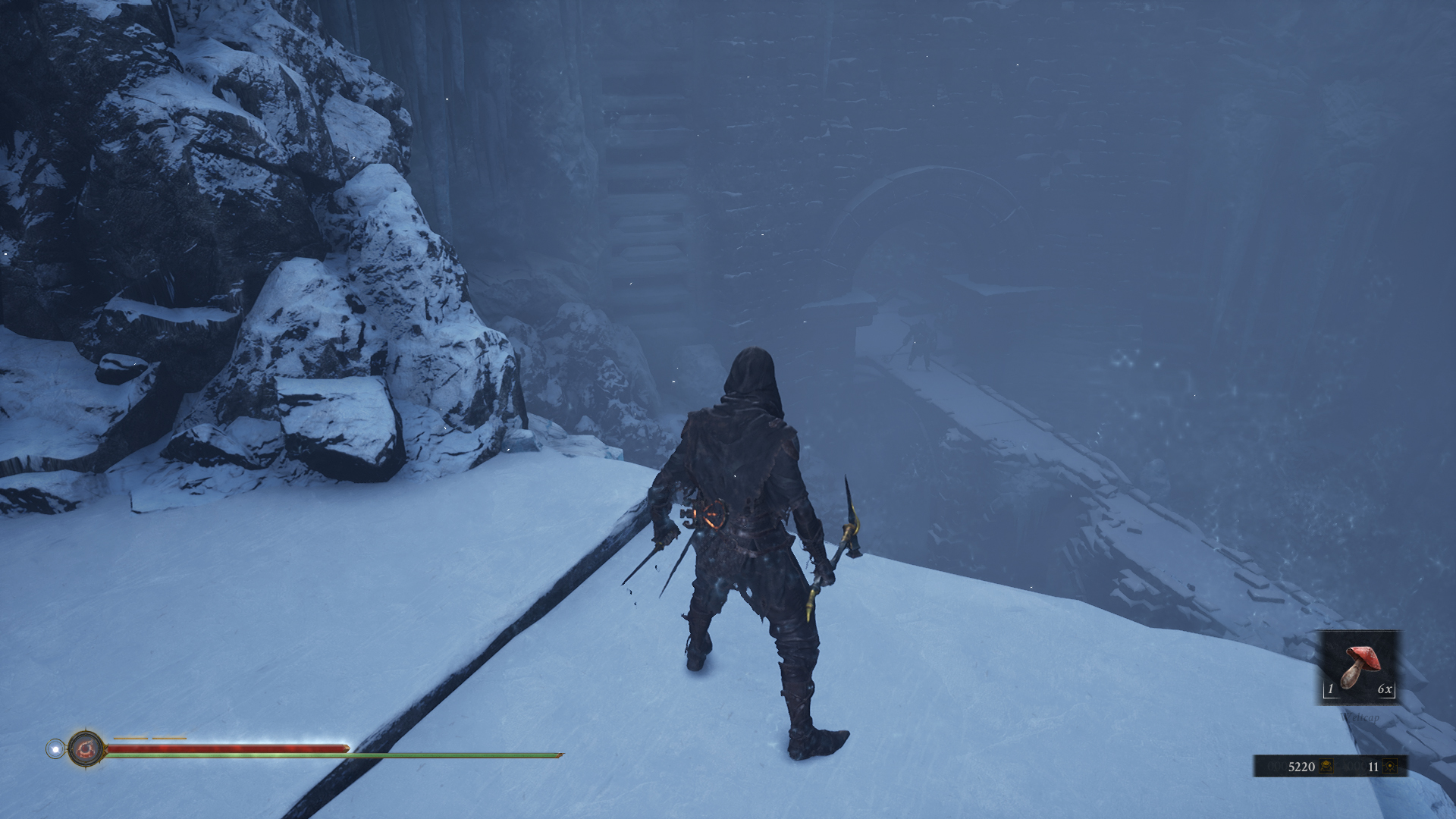
Another bug I experienced relates to how the game ragdolls your character if they’re hit with a particularly heavy attack. As I flew across the floor, I inadvertently got trapped into a wall. When my character stood up and returned to normal, I was unable to move and had no choice but to quit the game.
The most offensive bug, however, happened when I defeated the final boss and was asked whether I wanted to begin New Game + or return to Fallgrim and remain in the world. I chose to remain in the world because I wanted to get a few things done first, and when I returned to the arena, the final boss was alive once again. I was (and still am) in no mood to fight the boss again, so I just decided to leave it be. Outside of this, Mortal Shell has never crashed on me.
As far as settings go, Mortal Shell allows you to change the quality of shadows, textures, view distance, effects, foliage, post-processing and anti-aliasing from low to ultra. Additionally, there’s an option for HDR capabilities and the resolution scale slider can go from 30% to 200%. Options for unlimited framerate, V-Sync, motion blur and film grain are also available.
Mortal Shell: PC requirements
I initially tested Mortal Shell on my desktop, which is equipped with an Nvidia GeForce GTX 970 GPU with 4GB of VRAM and i7-6700K. I managed around 30 frames per second on Ultra graphics settings, with drops to around 20 to 25 fps in more intense areas.
I then tested the game on a laptop equipped with an RTX 2070 Max-Q GPU and an Intel i7-10750H CPU. I managed between 60 and 70 fps on Ultra graphical settings with 50 being the low point in certain areas.
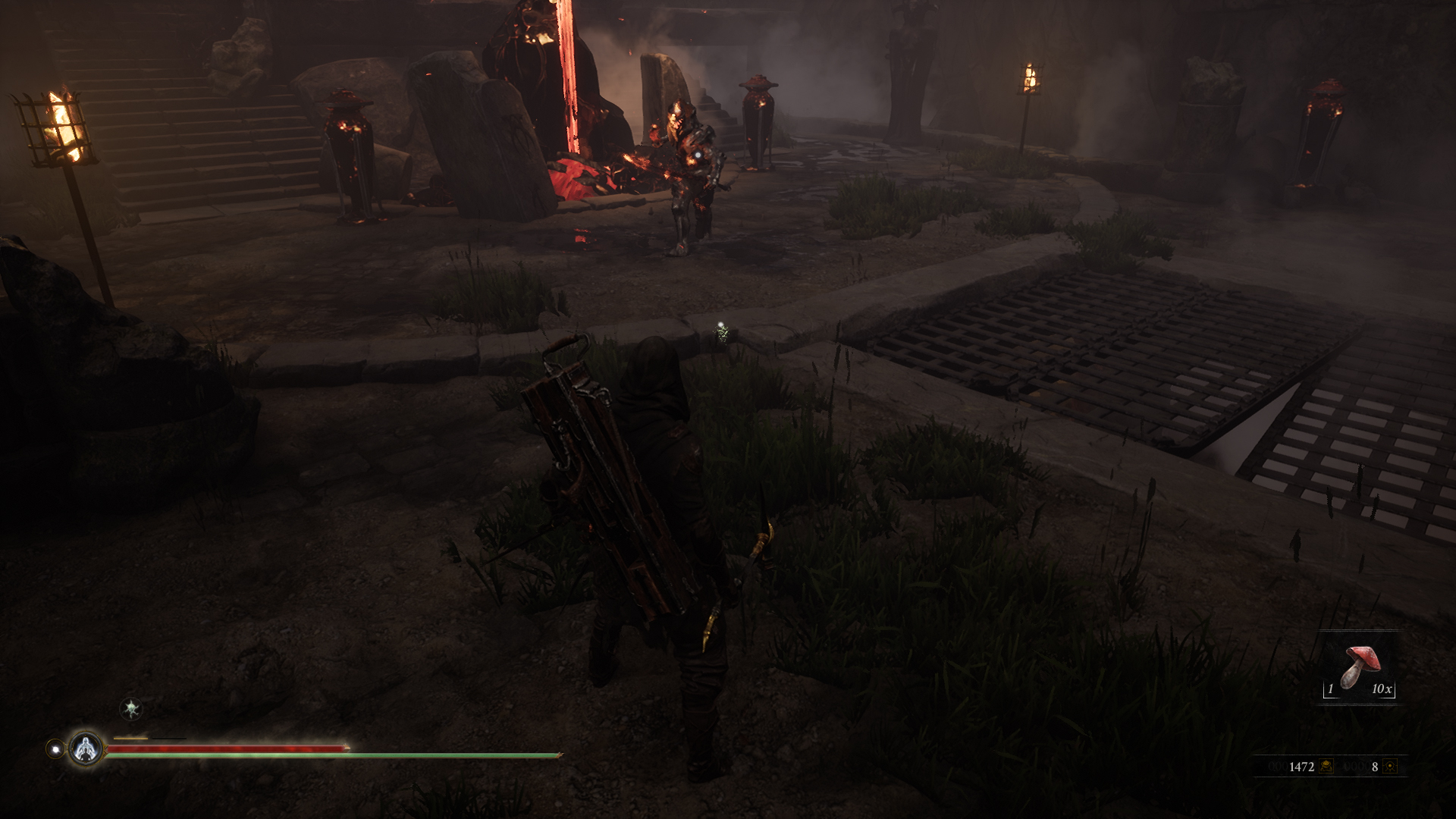
The minimum requirements to run Mortal Shell include Windows 7 SP1 or newer, an Intel Core i5-4590 or AMD FX 8350, 8GB of RAM, an NVIDIA GTX 970 or AMD Radeon R9 290 and 40GB of available space.
The recommended requirements include Windows 10, Intel Core i7 or AMD Ryzen 7, 16GB of RAM, NVIDIA GTX 1070 or AMD Radeon RX Vega 56 and 40GB of available space.
Mortal Shell will be available through the Epic Games Store on August 18 and is scheduled to release on Steam at some point in 2021.
Bottom Line
Mortal Shell will likely standout as a memorable experience for most who venture into its dark world. Yes, it has an underwhelming progression system, few unique enemy types and many reused assets, but it's still quite successful in what it sets out to do.
If you’re fan of the Soulsborne franchise, whether that be for its unforgiving combat system, strict checkpoint placement or thick atmosphere ripe with terrors, Mortal Shell is for you.

Self-described art critic and unabashedly pretentious, Claire finds joy in impassioned ramblings about her closeness to video games. She has a bachelor’s degree in Journalism & Media Studies from Brooklyn College and five years of experience in entertainment journalism. Claire is a stalwart defender of the importance found in subjectivity and spends most days overwhelmed with excitement for the past, present and future of gaming. When she isn't writing or playing Dark Souls, she can be found eating chicken fettuccine alfredo and watching anime.
